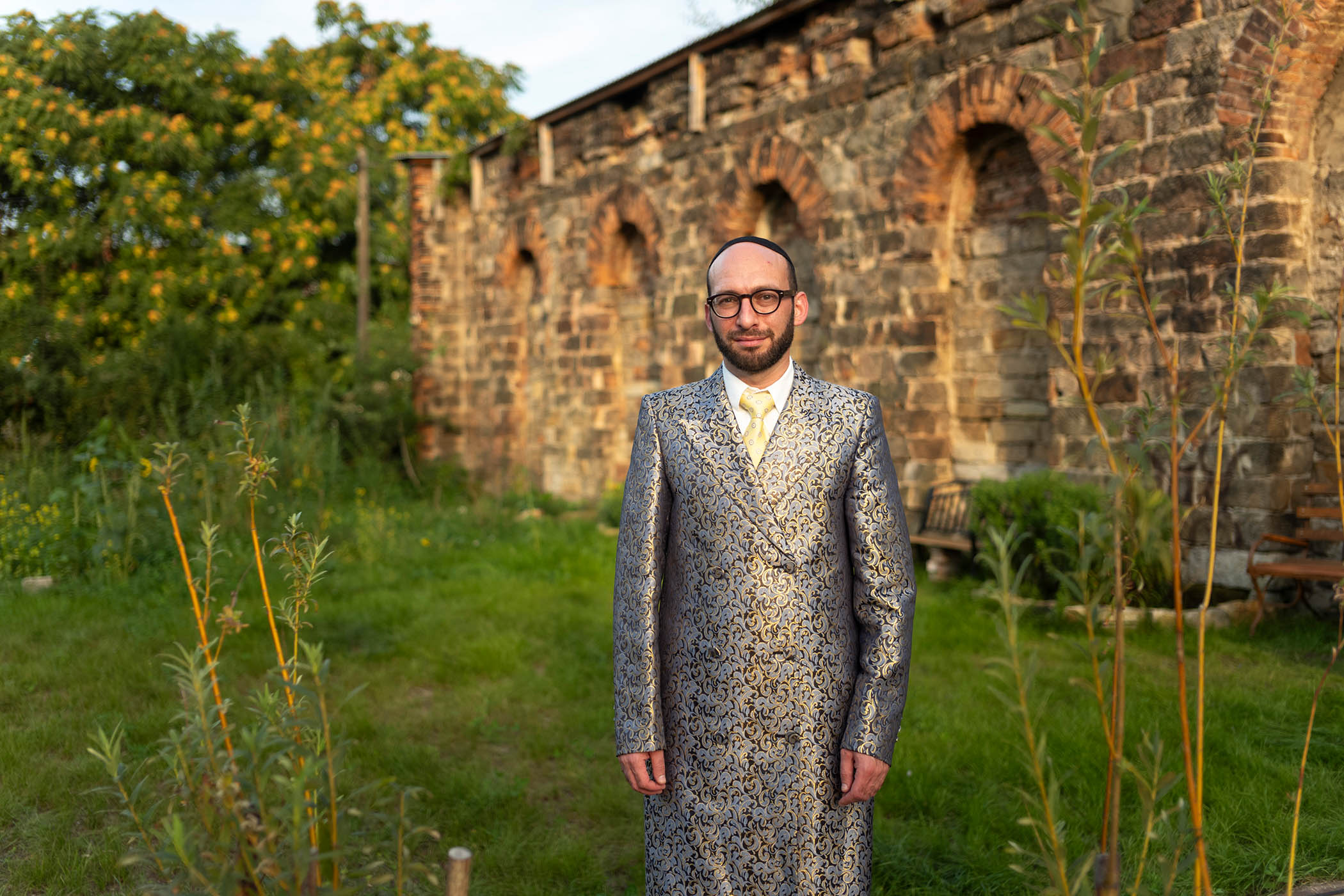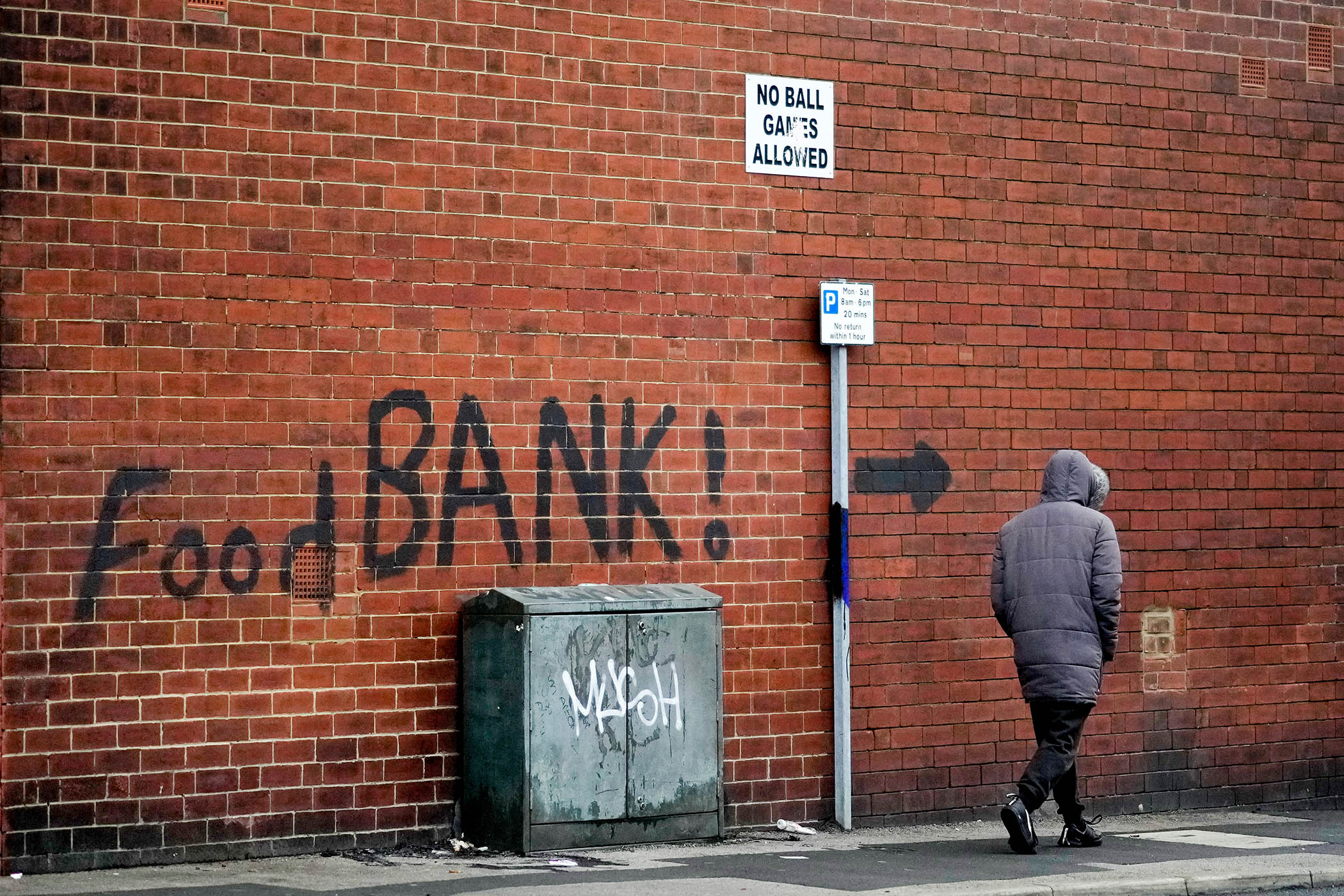In 2019, Akiva Weingarten took a job as a rabbi in Dresden, the east German city famous for its baroque architecture, picturesque setting on the Elbe River and for being a stronghold of the far-right Alternative für Deutschland (AfD). In this year’s federal election, the AfD received more than 37% of the vote in the surrounding Saxony state.
Looking out over the grey-tinged heads of his new congregation for the first time, Weingarten had a dark realisation. “The average age was about 65,” he recalled. “I thought, ‘If we don’t do something to bring young people in, then the Nazis will have won, 100 years later.’”
In a move that finds echoes in the Netflix series Unorthodox, Weingarten decided to found a community supporting people leaving ultra-orthodox Judaism – a journey he had made himself 10 years earlier. Today, more than 200 people, both locals and visitors from around the world, regularly attend his liberal, open synagogue, where Jews and non-Jews are welcome for Shabbat and prayer. He hopes he can establish a thriving Jewish community in a region known as one of the least diverse in Germany.
After the Holocaust, only about 15,000 Jews remained in Germany and the population barely grew until the early 1990s, when the country received an influx of thousands of Jewish refugees from the former Soviet Union. Today, the Jewish population is approximately 200,000 and is mostly based in the more prosperous western regions or in major cities such as Berlin. Migration to the former East Germany has always been more limited and many residents may never have met a Jewish person.
Weingarten’s new synagogue is tucked away behind Dresden’s Neustadt station in a depot that was used for transporting prisoners to concentration camps during the second world war. “It’s particularly symbolic to create a vibrant Jewish community in the place they tried to destroy us,” Weingarten said. The group took over the building in 2022 and is renovating it bit by bit on a tight budget. It’s also next to a leftwing squatter community living in self-built caravans. “Our best defence against any fascists!” Weingarten joked.
‘The God I grew up with is not a God I feel comfortable with, but what I’ve found today serves as a compass for life’
‘The God I grew up with is not a God I feel comfortable with, but what I’ve found today serves as a compass for life’
Akiva Weingarten
It’s not a paranoid thought: across Germany, the AfD is polling neck and neck with the ruling Christian Democrats (CDU) at 25%. Neo-Nazi groups appear to be emboldened by the party’s success: extreme-right crime rose by nearly 50% last year and marches and Nazi stickers and graffiti have become more commonplace in parts of the former East.
On a hot afternoon in mid-August, as Weingarten prepared for around 40 people to join him for Shabbat, he rolled a cigarette in his office and discussed his upbringing in Lakewood, New Jersey’s Hasidic community. Adherents there live a tightly controlled life, segregated by gender and from the outside world. Aged 18, Weingarten moved to Israel, had an arranged marriage and three children. But doubts that had existed in his head since childhood grew louder, driven by incidents such as the hypocrisy of community elders and protection of abusers. “Once you’ve truly lost your religion, there’s no going back,” he said.
He secretly planned an escape. Having received only religious education, he knew he would need a degree and discovered he could study in Germany for free. Also, due to its history, “Germany just felt like the furthest away place I could get from my old life.” At 29, he announced his departure. He and his wife immediately divorced and she took custody of their children.
For the first year in Germany, he felt he never wanted to set foot in a synagogue again, until his then-girlfriend encouraged him to share Shabbat. “I began realising how deep my Jewish identity is outside of orthodoxy and how much I enjoy practising when I’m not forced to,” he said. He began a Jewish studies programme at the University of Potsdam and embraced a liberal interpretation of his faith.
“The God I grew up with is not a God I feel comfortable with, but I think what I’ve found today is something independent of God that serves as a compass for life,” he said. Judaism is much more than a religion to him, it’s “thousands of years of tradition, it’s mysticism, it’s food, it’s music”.
Newsletters
Choose the newsletters you want to receive
View more
For information about how The Observer protects your data, read our Privacy Policy
One of the first to join Weingarten’s community was Moshe Barnett, now 27, who was born in London and grew up in Jerusalem. “I was a very curious child who always asked questions,” he said. This questioning first led him to embrace religious extremism, “because you think that will give you answers, but it doesn’t”. Then he swung to the other side and rejected Judaism entirely. “Here, I have separated being Jewish from having to believe in God,” he said.
The rapid increase in far-right support has created underlying tension. The synagogue recently installed security cameras
The rapid increase in far-right support has created underlying tension. The synagogue recently installed security cameras
Traditionally, people who left ultra-orthodoxy were shunned by their families but this has changed as higher numbers leave. Both Barnett and Weingarten are still in contact with family members, and Weingarten’s daughters now live with him. “I wouldn’t go as far to say they accept me,” he said. “But they saw how other families were completely broken after cutting people out.”
While Barnett enjoys living in Germany, others can struggle with the language and xenophobia they sometimes encounter. The rapid increase in far-right support has created an underlying tension. The synagogue recently installed security cameras and there is usually a police car outside, although they have never been threatened or vandalised. Weingarten, who wears a kippah, says he generally feels safe bar a few comments in the street.
Local neo-Nazi groups were a source of fascination for Barnett when he first arrived – he and three other community members once sneaked out of German class to try to watch a notorious local march that takes place each February, but were stopped by police. Earlier this year, someone performed a Hitler salute when he was giving a speech at a Social Democrat (SPD) rally but, overall, he finds local people welcoming “once you get past the tough exterior”.
Others at Shabbat are more nervous. “It’s very frightening,” said Joshua, who grew up in Frankfurt and moved to Dresden for university 14 years ago. He doesn’t tell work colleagues he is Jewish and doesn’t want to give his surname. However, he says safety concerns have always been part of German-Jewish life: “Entering my parents’ synagogue was like going through airport security.”
Interfaith work has been central to the community’s vision of diverse life, and the space hosts Iftar events during Ramadan. The 7 October attack in Israel made things more complicated: many community members know people affected by the Hamas atrocities, and are also horrified at the images coming out of Gaza. “Not everyone here is Israeli,” Weingarten says, adding they believe their local community is where they can have the most impact, challenging rising antisemitism and Islamophobia and encouraging respectful discussion.
The ultimate goal is to “create a community outside of the community we grew up in”, he said, that offers support without oppression. “One thing about growing up in the ultra-orthodox world is the lack of individualism. Your whole existence is being part of the community and serving God. Losing that means you lose your sense of who you are and what your purpose is. We offer a home for those who were forced to give that up.”
Photograph by Sven Döring/The Observer


